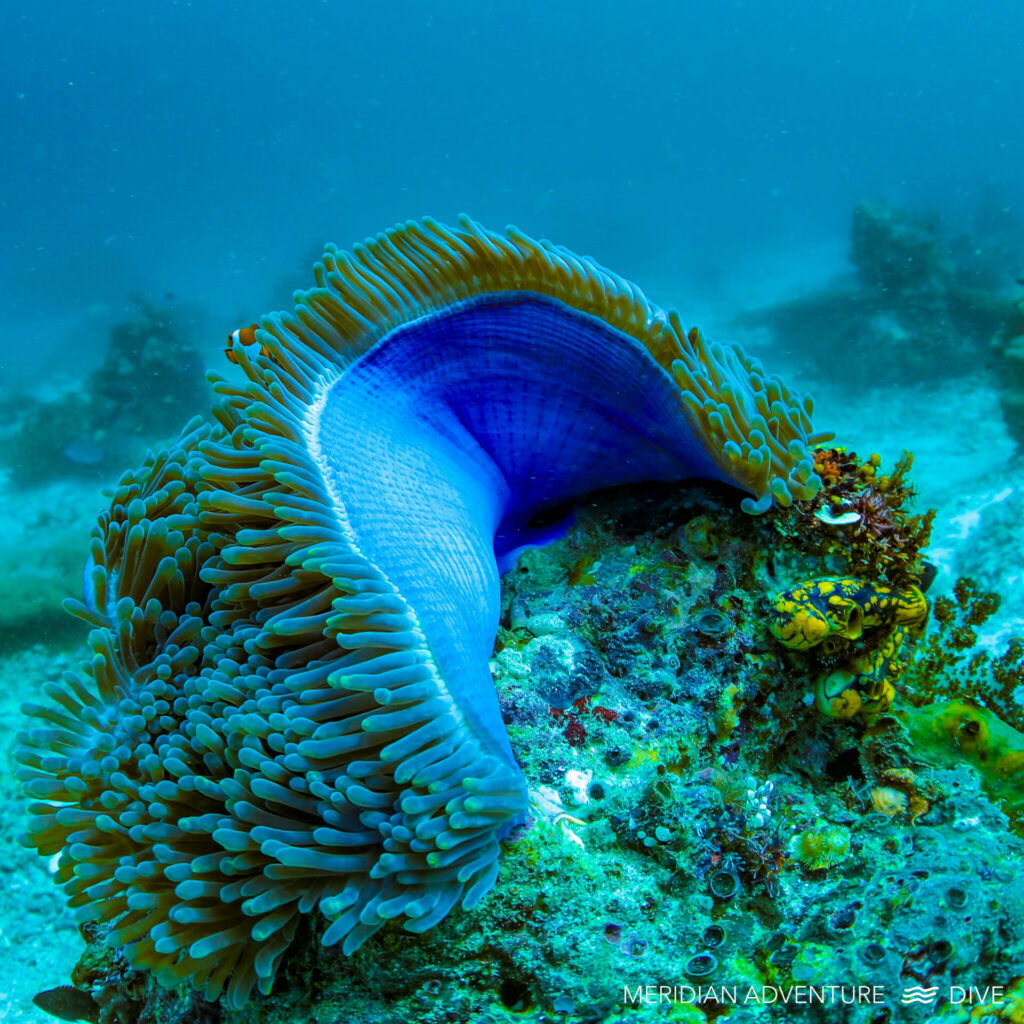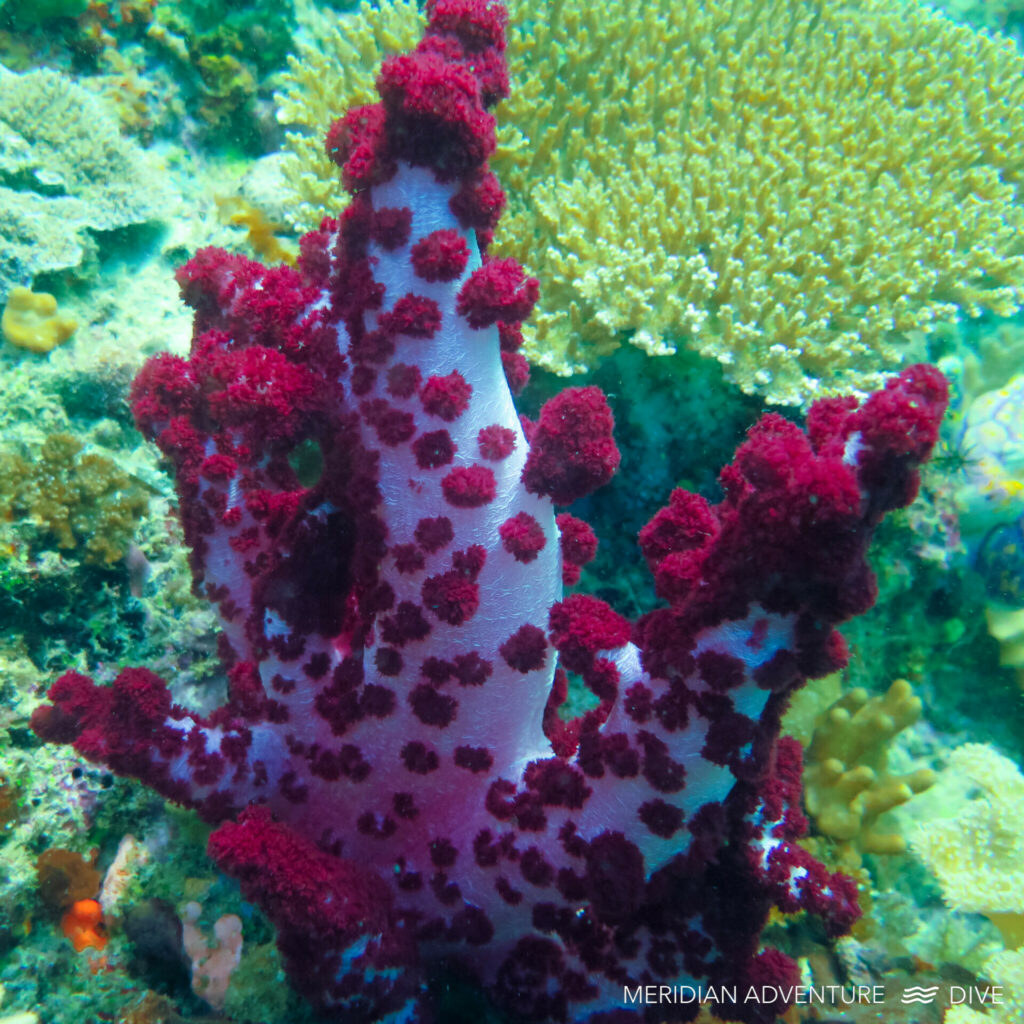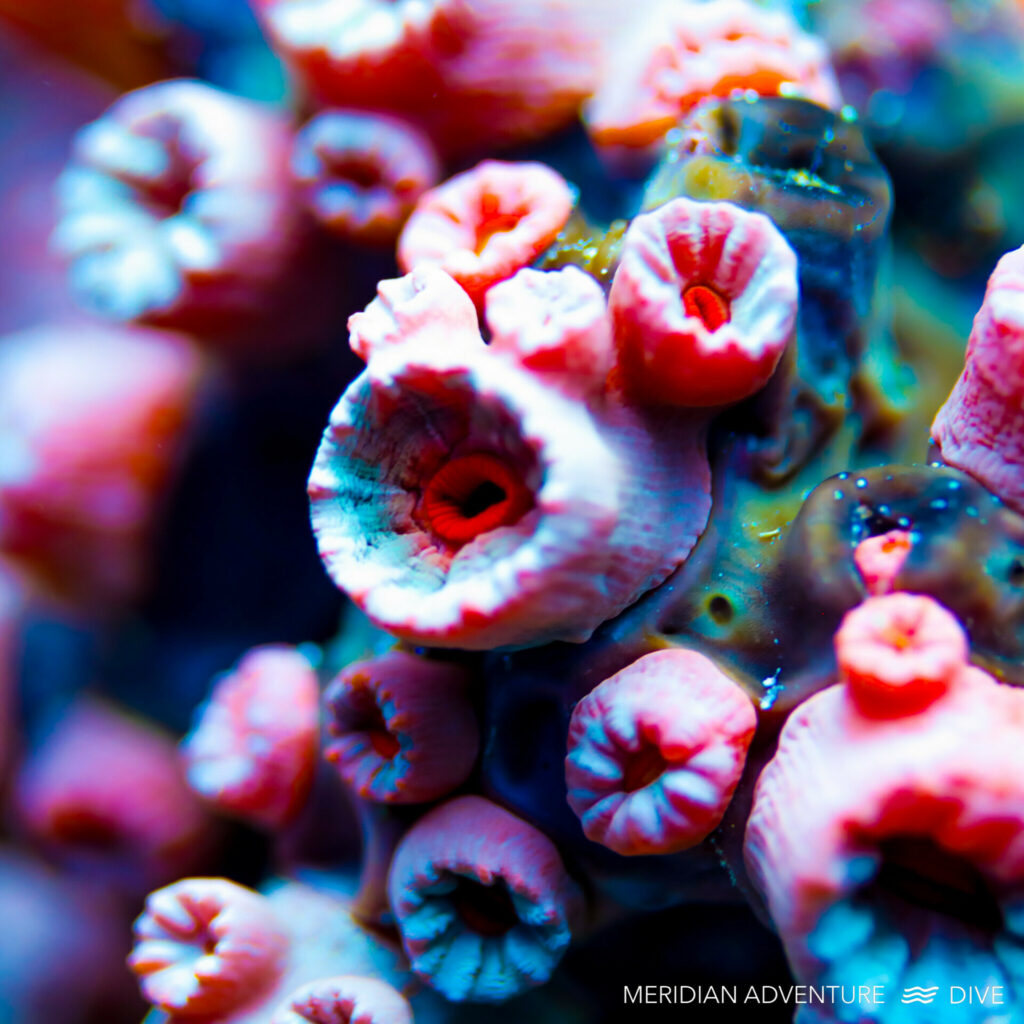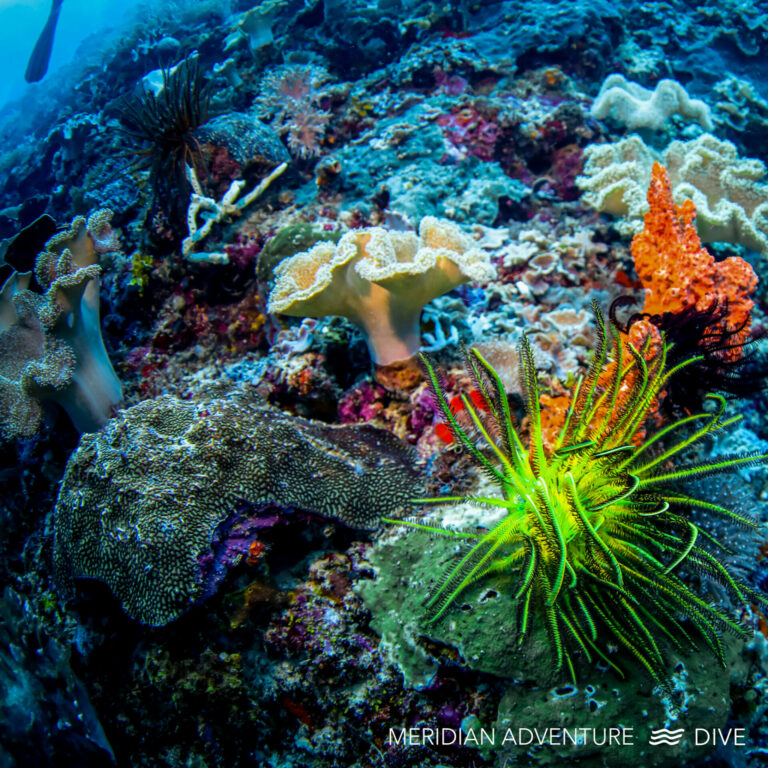Why are the coral reefs so healthy in Raja Ampat?
Raja Ampat, located in the heart of the Coral Triangle in Indonesia, is renowned for its exceptionally healthy and diverse coral reefs. Several factors contribute to this region’s remarkable health.
High Biodiversity: A diverse range of species often leads to more stable ecosystems. Each species plays a role in the functioning of the ecosystem, and the loss of any one species can have cascading effects on others. High biodiversity can buffer ecosystems against disturbances such as disease outbreaks, extreme weather events, or invasive species.
Biodiversity provides natural resilience to environmental changes. In the face of climate change, diverse ecosystems are more likely to contain species that can adapt to changing conditions or provide essential ecosystem services like carbon sequestration and water purification. Within species, genetic diversity is crucial for adaptation and survival.

In diverse ecosystems like Raja Ampat, the chances of having individuals with beneficial genetic traits that enable them to cope with environmental changes are higher. This genetic diversity can be essential for the long-term survival of species.
Remote Location: Its remoteness has played a crucial role in safeguarding these ecosystems from the detrimental impacts of human activities such as pollution and overfishing, unfortunately common in more accessible areas. The remote location of Raja Ampat has limited human presence and development, thereby reducing direct anthropogenic stressors on its marine environment.
This isolation has allowed its ecosystems to flourish relatively undisturbed, providing a haven for marine species and supporting the health of coral reefs. As a result, Raja Ampat has become a focal point for ecotourism and scientific research, attracting visitors and researchers alike who seek to explore its pristine natural beauty and study its unique marine biodiversity.

Effective Marine Protection: Raja Ampat’s establishment of marine protected areas (MPAs) and conservation initiatives is a commendable effort to preserve its marine ecosystems. Effective marine protection often begins with thorough scientific research to understand the ecosystem’s dynamics, including biodiversity, habitats, and threats.
Raja Ampat has invested in research to inform conservation strategies, helping to identify critical areas for protection and understanding the needs of various marine species. Establishing regulations and enforcing them is crucial for the effectiveness of MPAs. Raja Ampat’s authorities likely enforce fishing restrictions and other regulations within the protected areas to prevent illegal activities that could harm marine life.
Strong Community Involvement: Raja Ampat Regency’s local communities play a significant role in conservation efforts. Many initiatives involve community-based management of marine resources, empowering locals to take ownership of protecting their reefs and fisheries.
Educating visitors, residents, and stakeholders about the importance of marine conservation fosters a culture of environmental stewardship. Raja Ampat Regency conducts educational programs and awareness campaigns to promote responsible behaviour and garner support for marine protection initiatives.

Healthy Coral Reef Structure: The presence of various coral species allows for the formation of complex habitat structures. Coral colonies grow and intertwine over time, creating nooks, crannies, and sheltered spaces for marine life. These intricate structures offer refuge and breeding grounds for fish, crustaceans, and other marine organisms.
Healthy coral reefs exhibit a three-dimensional structure, with corals growing vertically and horizontally. This multi-layered architecture provides habitats at different depths and enables organisms to utilise various parts of the reef. Vertical structures, such as coral bommies and walls, offer vertical relief and enhance habitat complexity.
Adequate coral cover is essential for maintaining a healthy reef structure. Corals exhibit robust growth in thriving reefs, with colonies extending their branches and forming intricate frameworks.
Rapid coral growth rates contribute to the reef’s resilience by replenishing damaged areas and resisting erosion. Healthy reefs exhibit ongoing processes of coral recruitment and regeneration.
Larvae settle and attach to suitable substrates, contributing to the growth of new coral colonies. Regeneration mechanisms, such as branching and fragmenting, allow corals to recover from damage and maintain overall reef health.
Favourable Environmental Conditions: The warm waters in Raja Ampat provide an ideal habitat for many marine species, including corals, fish, molluscs, and invertebrates. These warmer temperatures support the growth and reproduction of various organisms, contributing to the area’s high biodiversity. Raja Ampat is located near the equator, receiving abundant sunlight throughout the year.
Sunlight is essential for photosynthesis, the process by which marine plants, such as algae and coral polyps, produce energy. The availability of sunlight supports the growth of vibrant coral reefs and encourages the proliferation of other photosynthetic organisms, which form the foundation of the marine food web.
The strong ocean currents in Raja Ampat are crucial in nutrient distribution and exchange. These currents bring nutrients from deeper waters to the surface, where they can fuel the growth of phytoplankton and other primary producers.
Phytoplankton serves as the base of the marine food chain, supporting the entire ecosystem. Additionally, strong currents help maintain water clarity by flushing out sediments and pollutants, which is essential for the health of coral reefs and other marine habitats.
These factors collectively contribute to Raja Ampat’s exceptional health of coral reefs, making it a globally significant hotspot for marine biodiversity conservation. Despite its resilience, ongoing conservation efforts and sustainable management practices are essential to ensure these ecosystems’ long-term health and viability in the face of growing environmental pressures and climate change threats.
Situated in Raja Ampat, Indonesia, Meridian Adventure Dive is a PADI 5 Star Resort and winner of the PADI Green Star award. Scuba divers enjoy our professional services that have become synonymous with both the PADI and Meridian Adventure names.


